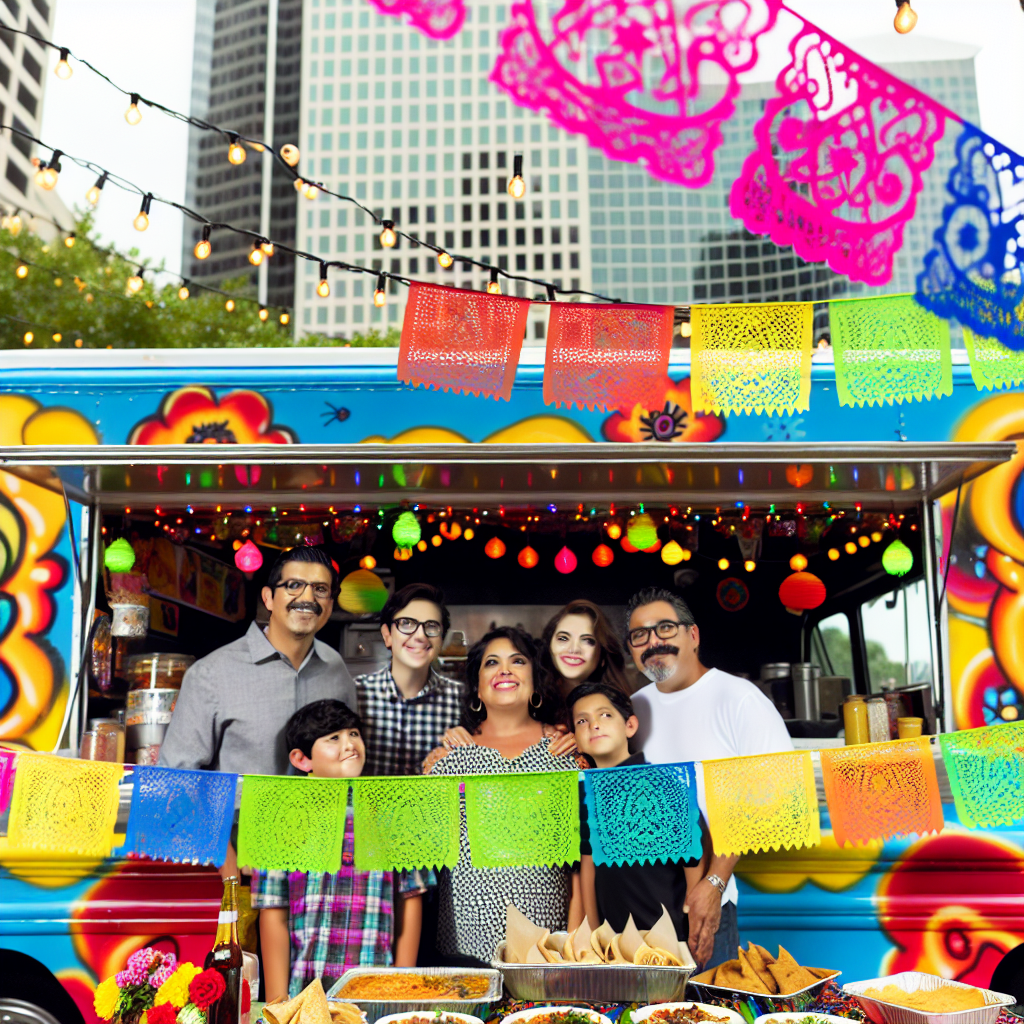Food trucks are much more than a convenient dining option; they represent a thriving entrepreneurial movement, especially for Latino entrepreneurs in the United States. Recent statistics reveal that nearly 45% of food trucks are minority-owned, with immigrant entrepreneurs comprising about 30% of the industry. This substantial presence of diverse ownership highlights how food trucks have emerged as accessible avenues for culinary creativity and business ventures, particularly in the Latino community. As this vibrant sector continues to expand, it brings with it a series of legal considerations that aspiring food truck owners need to navigate. From permits and licenses to health and safety regulations, understanding these legal aspects is crucial for anyone looking to jump into this exciting entrepreneurial endeavor. In this article, we will explore the essential legal framework around starting a food truck and provide insights to help Latino entrepreneurs successfully navigate the complexities of the industry.
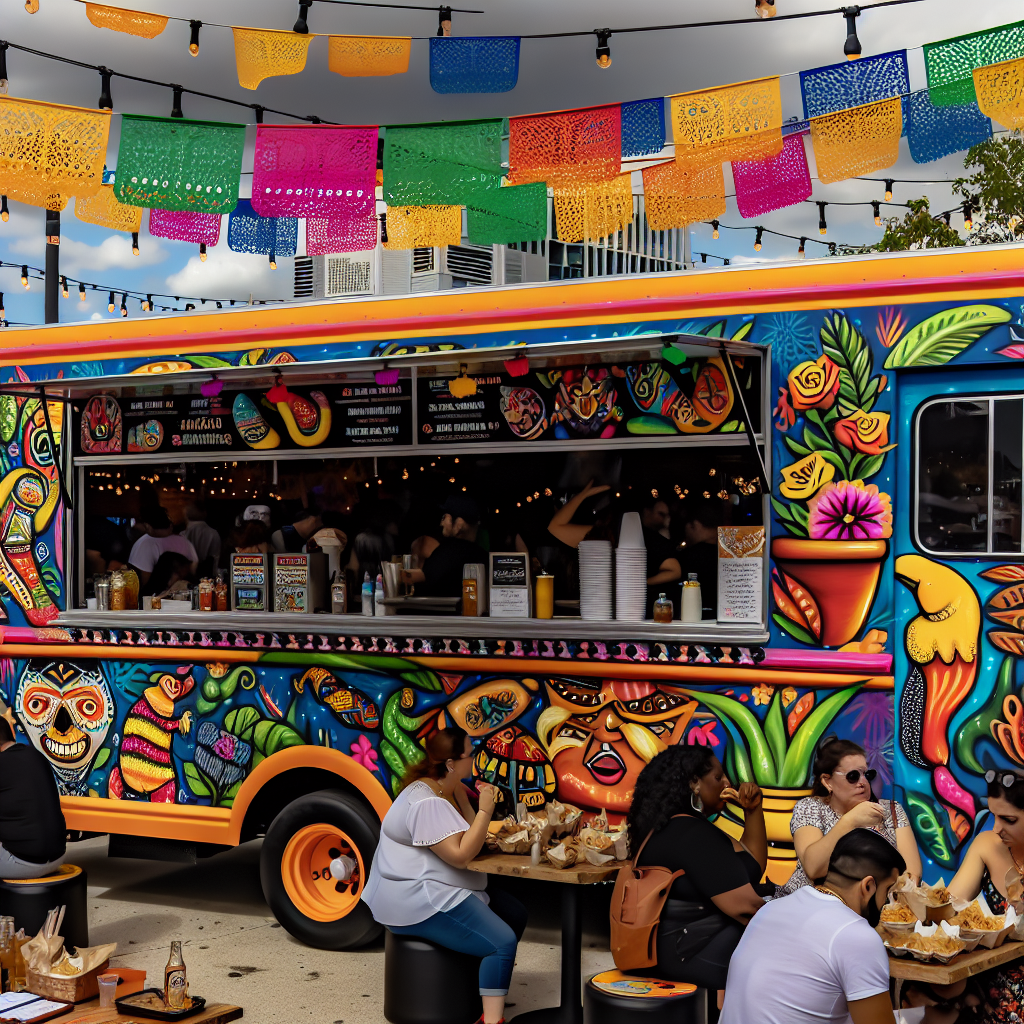
Key Legal Requirements for Latino Food Truck Startups
- Business License: Obtain a general business license to operate in your city or county. This includes registering your business name (DBA) if operating under something other than your own name.
- Food Truck Permit: Apply for a food truck permit specific to mobile food vendors, which varies by locality.
- Health Department Permit: Comply with local health department regulations and obtain the necessary permits that allow you to prepare and sell food. This typically involves inspections by health officials.
- Fire Department Permit: If your food truck utilizes cooking equipment that produces flames or heat, you may need a fire safety inspection and permit from the local fire department.
- Sales Tax Permit: Register for a sales tax permit to legally collect sales tax from customers and remit it to the state.
- Employee Identification Number (EIN): If you plan to hire employees, apply for an EIN through the IRS for tax purposes.
- Food Safety Certification: Complete food safety training programs, as some states require food handlers to obtain certification demonstrating knowledge of safe food handling practices.
- Insurance Requirements: Obtain appropriate insurance coverage, including general liability insurance and vehicle insurance for your food truck.
- Zoning Permits: Check local zoning laws to ensure you can operate your food truck in your desired locations and adhere to any operational restrictions.
- Commissary Agreement: Establish a relationship with a local commercial kitchen (commissary) if your food truck requires kitchen facilities for food preparation and storage.
These legal requirements vary from state to state and even city to city. It is crucial for aspiring food truck owners, particularly within the Latino community, to research local regulations thoroughly and ensure they are in full compliance before launching their business.
For more information and resources related to Latino food truck entrepreneurship, you can visit the Latino Food Truck Association.
Permits and Licenses Needed to Operate a Food Truck
If you want to run a food truck, you need several permits and licenses. These can change based on where you are, so it is important to know what you need. Below is a list of common permits and licenses you will likely need to get started:
- Business License: This is required to register your food truck business with local authorities. It applies in all states and usually costs between $50 and $500, depending on where you are.
- Food Vendor Permit: Most areas need this permit to legally sell food. You will usually apply for it through the local health department.
- Health Department Inspection & Food Handler Certificate: Health inspections are mandatory to ensure safety and compliance. Most states require at least one person in the operation to complete food safety training.
- Mobile Vendor License: This permit allows food trucks to operate in public areas. Additional approvals may be needed based on local rules.
- Commissary Agreement: You may need to partner with a licensed commercial kitchen for food preparation and storage.
- Fire Department Inspection: If your truck has cooking equipment that can catch fire, you will need an inspection from the fire department.
Examples by Location
- California (Los Angeles): You need a business license and a mobile food permit, and you can’t serve alcohol without a special license.
- New York City: A supervisory license is required for vending permits, and spots are competitive.
- Texas: You need a business license and a food handling certification, with requirements that can vary by city.
- Tennessee: Each city requires its own business license and mobile food permit and needs a commissary agreement.
- Kansas: Cities decide where food trucks can operate, so you need to check local zoning laws.
Cultural Relevance for Latino Food Truck Owners
For many Latino entrepreneurs, food trucks mean more than just making money; they are a way to share their culture. Food trucks serving traditional foods, like taco trucks, are especially important in diverse areas.
In cities such as Los Angeles, these trucks play crucial roles in neighborhoods with many Latino families. These businesses help keep cultural traditions alive while also navigating the American business landscape. Understanding local laws can help maximize their operating potential.
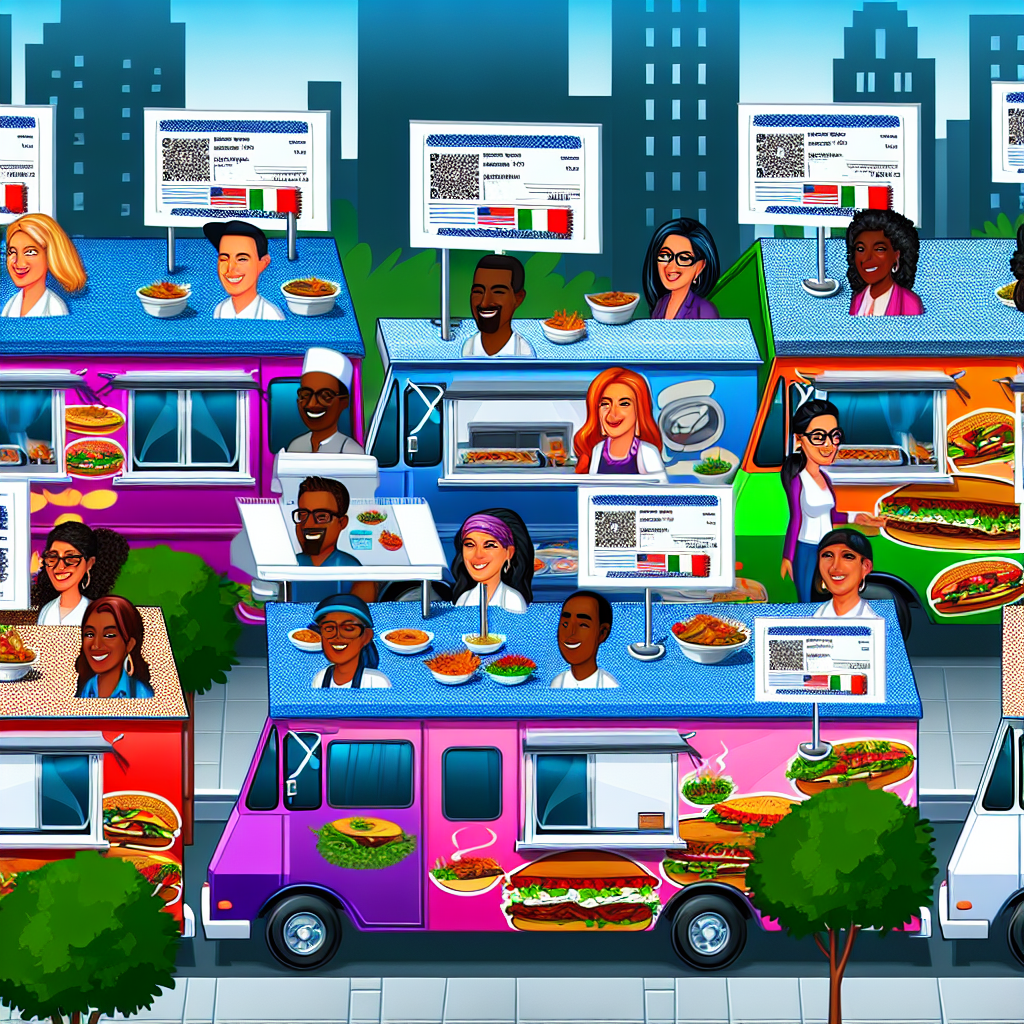
| State | Food Truck Permit Requirements | Health Department Regulations | Seasonal Restrictions |
|---|---|---|---|
| California | Must obtain a mobile food facility permit from local county | Inspections required, food handler certification mandatory | Varies by city, often requires permits for events |
| New York | Requires a mobile food vending permit | Health inspection required, at least one certified food handler | Limited seasonal permits, high competition for spots |
| Texas | Obtain a food vendor’s permit from local authorities | Regular health inspections needed, must have a commissary | Generally year-round, local ordinances may apply |
This table highlights key differences in regulations for food trucks across California, New York, and Texas. Understanding regional differences is crucial for compliance and successful operation of food trucks.
Health Regulations for Food Trucks
Ensuring compliance with health regulations and food safety standards is crucial for food truck operators, particularly Latino entrepreneurs aiming to build trust with their customers. Adhering to these standards not only safeguards public health but also enhances a business’s reputation and operational success.
Key Aspects of Compliance:
- Licensing and Permits: Food truck operators must obtain various licenses and permits, including a mobile food vendor license, business license, and fire department permits. Specialized permits may be required depending on menu offerings, such as those for serving alcohol or operating during late hours.
- Health Permits and Inspections: Securing health permits involves complying with local health and safety regulations, which include proper food storage, sanitation practices, and passing health inspections. Regular inspections ensure ongoing compliance and help prevent foodborne illnesses.
- Food Safety Practices: Implementing Hazard Analysis Critical Control Points (HACCP) systems helps identify and control potential food safety hazards. Maintaining proper temperature controls, preventing cross-contamination, and ensuring equipment meets safety standards are essential components.
- Employee Training: Providing ongoing training to employees on food safety, health codes, and best practices is vital. This includes proper handwashing procedures, food handling techniques, and understanding of health regulations.
- Record-Keeping: Maintaining accurate records of permits, food safety logs, equipment maintenance, and employee training demonstrates compliance and readiness for inspections. This proactive approach can significantly reduce the risk of legal issues.
Importance for Latino Entrepreneurs:
For Latino food truck entrepreneurs, strict adherence to health regulations and food safety standards is not only a legal obligation but also a strategic business practice. It fosters customer trust, enhances brand reputation, and contributes to the overall success and sustainability of the business. Organizations like the Latino Food Truck Association advocate for fair regulations and provide support to ensure that Latino-owned food trucks operate responsibly and thrive in their communities.
By prioritizing compliance and safety, Latino food truck operators can build a loyal customer base and establish themselves as reputable and trusted businesses within the food industry.
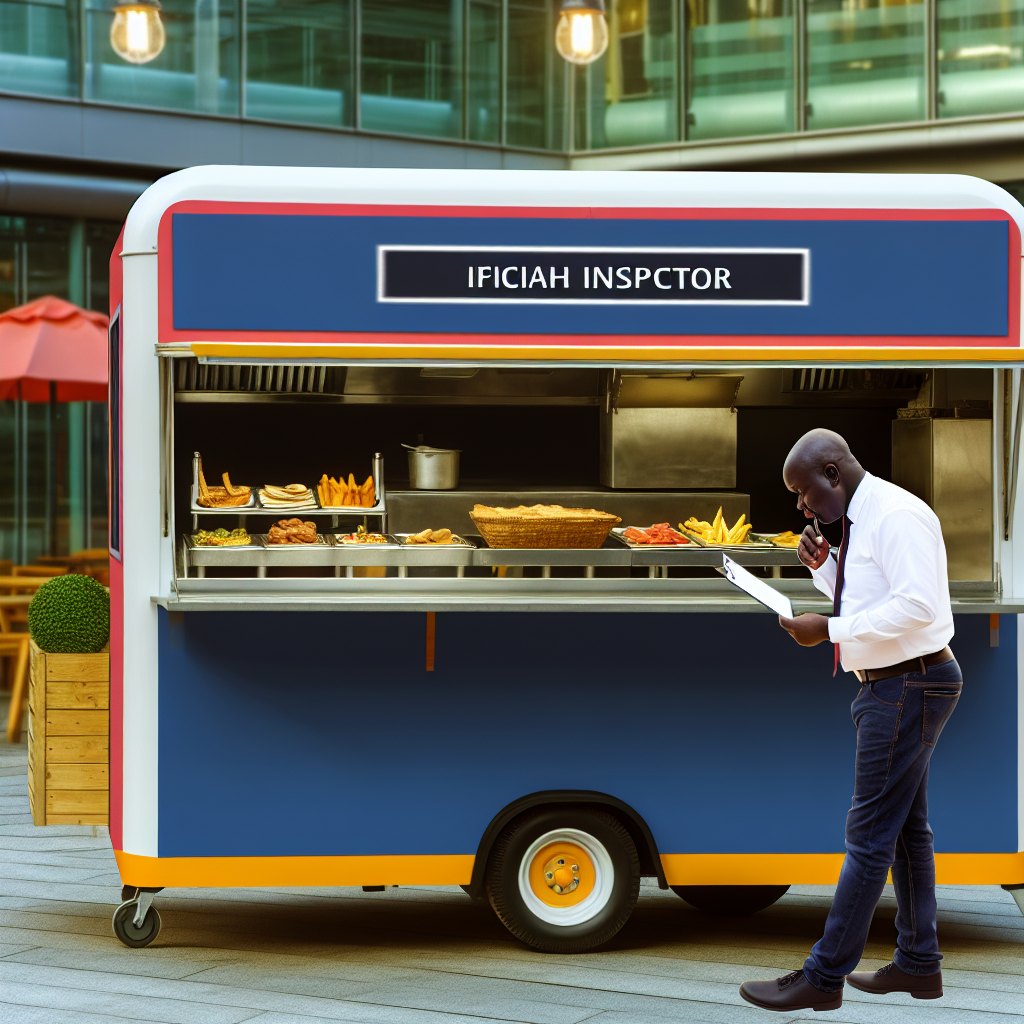
An image depicting a food truck undergoing a health inspection, emphasizing the importance of health compliance for food truck businesses.
Overcoming Challenges Faced by Latino Food Truck Entrepreneurs
Latino food truck entrepreneurs in the United States encounter several legal challenges, including discrimination, financial barriers, and complex regulatory environments. Understanding these obstacles and exploring strategies to overcome them is crucial for fostering a more equitable and thriving food truck industry.
Discrimination
Latino food truck owners often face discriminatory practices that hinder their business operations. For instance, in League City, Texas, a new ordinance restricted food trucks to designated parks or special events, effectively prohibiting operations on private properties like gas stations. Many Hispanic food truck owners perceived this regulation as discriminatory, feeling it unfairly targeted their businesses, which predominantly serve Mexican cuisine. Despite city officials’ assertions that the ordinance was not intended to discriminate, the impact on Hispanic entrepreneurs was significant. [thegalveston.org]
Financial Barriers
Access to capital remains a significant hurdle for Latino entrepreneurs. Studies indicate that only 20% of Latino-owned businesses seeking loans over $100,000 from national banks receive approval, compared to 50% of White-owned businesses. Additionally, the average loan size for Latino-owned companies is substantially lower than that for non-Latino-owned firms. Factors contributing to this disparity include lower average credit scores and the absence of traditional identification, such as Social Security numbers, which are often required for loan applications. [oneparkfinancial.com]
Regulatory Challenges
Navigating complex and sometimes restrictive regulations poses another significant challenge. In San Antonio, Texas, a city ordinance prohibits food trucks from operating within 300 feet of brick-and-mortar restaurants unless they obtain written permission from the restaurant owner. This regulation has forced some food trucks to shut down or relocate, imposing financial and operational burdens on the owners. [ij.org]
Overcoming These Obstacles
To address these challenges, Latino food truck entrepreneurs can consider the following strategies:
- Advocacy and Community Engagement: Forming or joining associations can amplify voices and advocate for fair regulations. The Latino Food Truck Association in Philadelphia, for example, works to eliminate systemic barriers and promote economic opportunities for Latino-owned food trucks through advocacy, education, and community support. [latinofoodtruckassociation.org]
- Financial Education and Alternative Funding: Improving financial literacy and exploring alternative funding sources, such as microloans or community development financial institutions (CDFIs), can help overcome traditional financing barriers. Building a strong credit history and seeking mentorship programs can also enhance financial stability.
- Legal Support and Compliance: Staying informed about local regulations and seeking legal assistance can help navigate complex legal landscapes. Engaging with local policymakers to advocate for more inclusive policies and participating in public forums can also influence positive change.
By proactively addressing these challenges through community engagement, financial empowerment, and legal advocacy, Latino food truck entrepreneurs can work towards creating a more equitable and supportive environment for their businesses.
Conclusion: Embracing Your Culinary Dream
Starting a food truck can be a fulfilling endeavor, especially for Latino entrepreneurs eager to showcase their culinary heritage. Throughout this article, we explored essential legal considerations, from obtaining the necessary permits and licenses to understanding health regulations and overcoming common challenges. Navigating these complexities can seem daunting, but they play a vital role in establishing a successful and compliant food truck business.
To help you embark on this entrepreneurial journey, here are some actionable tips:
- Research Local Regulations: Before launching your food truck, familiarize yourself with the specific legal requirements in your area. Each state and locality has unique regulations, so understanding these will help you avoid potential downfalls.
- Prioritize Legal Compliance: Ensure that you obtain all necessary permits and licenses. Compliance not only protects your business legally but also builds trust with your customers and the community.
- Emphasize Food Safety: Implement strict food safety practices from the outset. This includes maintaining proper hygiene, regular staff training, and passing health inspections. A good reputation for food safety can lead to customer loyalty.
- Engage with the Community: Encourage community engagement by participating in local events and collaborating with other businesses. Forming associations or networks with fellow Latino entrepreneurs can foster support and advocacy for more inclusive regulations.
- Stay Financially Informed: Seek financial education to enhance your understanding of funding options. Explore various resources, such as CDFIs or microloan programs, that may better suit your needs, especially if traditional financing poses challenges.
- Celebrate Your Culture: Use your food truck to share your cultural heritage. Unique culinary offerings can set your business apart, attracting a diverse customer base while allowing you to honor your roots.
Starting a food truck business not only offers the opportunity for financial success but also allows you to share your story and culture through food. Stay focused, remain compliant, and embrace the journey ahead. Your dreams of food entrepreneurship are within reach, and your contribution to the vibrant food truck scene is invaluable. Start today and turn your passion into a thriving business!

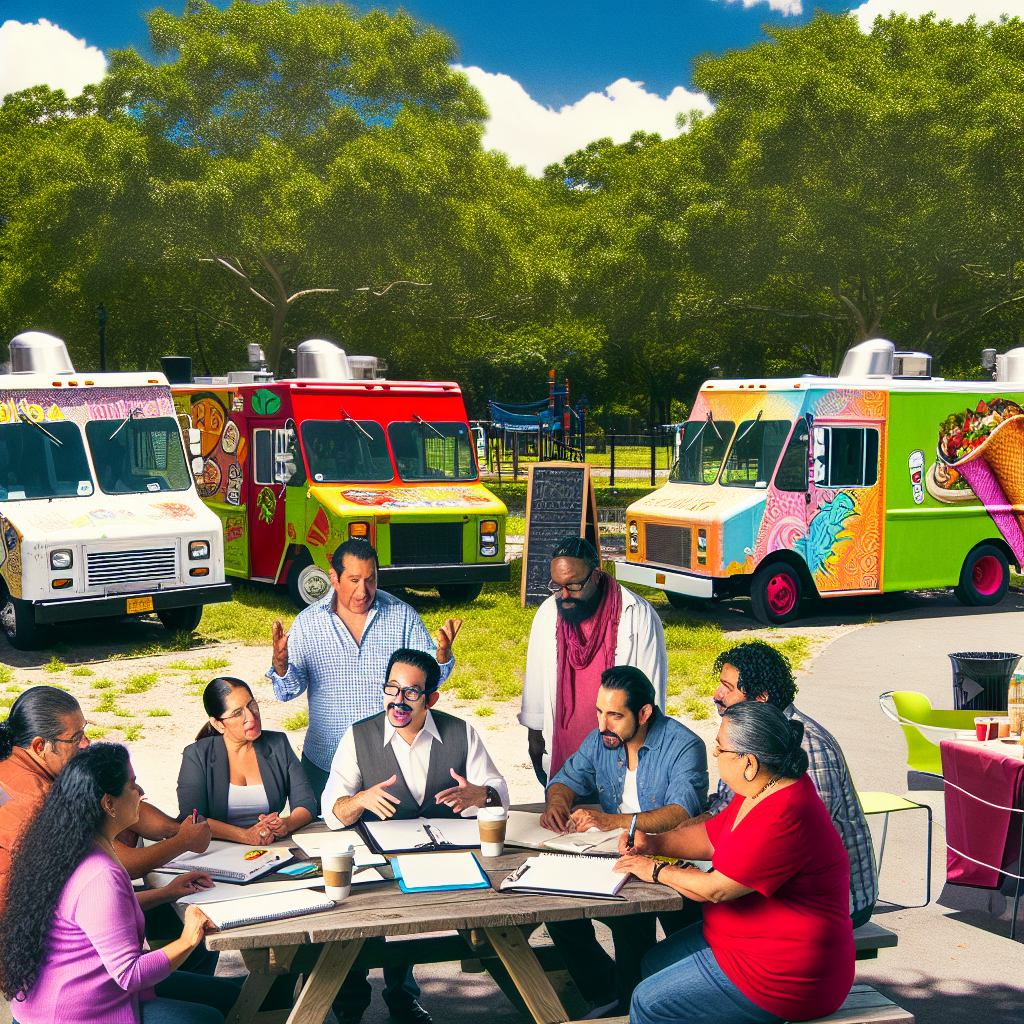
A group of Latino food truck entrepreneurs collaborating on business strategies, symbolizing community engagement and the importance of understanding and navigating Latino food truck regulations.

